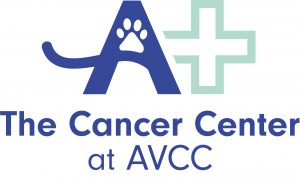
Cancer is the leading cause of death in pets beyond middle age. Below are top 11 warning signs of cancer in companion animals. If you notice any of these signs in your pet, please consult a veterinarian as soon as possible.
1. Abnormal swellings (lumps or bumps)
It is important to check your pet’s body regularly (at least once a month) for any lumps or bumps. Check for swollen lymph nodes typically located under the jaw, shoulders, armpits, groin, and behind knees. Swollen lymph nodes can be a sign of lymphoma. We strongly recommend to have your pet evaluated as soon as possible if lumps or bumps are observed.
2. Sores that do not heal
Non-healing sores in skin or near a nail bed can be a sign of infection or cancer.
3. Weight loss
Unexplained weight loss that is not related to a change in the diet or food could be a sign of illness. Many pets with cancer have a history of weight loss.
4. Loss of appetite
Any changes in a pet’s appetite should be monitored carefully as it may be a sign of illness.
5. Bleeding or discharge from body openings
Bleeding can occur for many reasons – most of which are abnormal. If your pet is experiencing any unexplained bleeding or discharge, we recommend consulting a veterinarian immediately.
6. Offensive or unpleasant odor
This is a common sign especially for tumors in the mouth, nose, or anus.
7. Difficulty eating or swallowing
This is a common sign of cancers of the mouth and neck.
8. Hesitation to exercise or loss of stamina
This can be one of the first signs that your pet is not feeling well.
9. Persistent lameness
There are many causes of lameness, including nerve, muscle or bone cancer. Unexplained lameness in medium to large breed dog is a very common sign of bone cancer.
10. Difficulty breathing, urinating, or defecating
These problems are likely caused by an underlying health problem. A dry, non-productive cough may be signs of a tumor in their lungs. Difficulty urinating or defecating may be an indication of problem in their urinary tract system (urinary bladder or prostate in males) or gastrointestinal tract (i.e. anal sacs masses)
11. Chronic vomiting or diarrhea
Any of these signs should prompt further investigation, as some tumors of the gastrointestinal tract can cause chronic vomit and/or diarrhea.
Meet the team from The Cancer Center at AVCC here
For additional information on comprehensive pet cancer care, click here.
The Cancer Center at AVCC is located in South Florida in Broward County.
8920 W. State Road 84
Davie, Florida 33324
954-500-8387
The Cancer Center at AVCC offers the following oncology services:
Diagnostic tests including:
- Fine needle aspirates/cytology
- Bone marrow aspirates
- Bone biopsies
- Incisional and punch biopsies
- Personalized genomic testing
Treatment:
- Traditional chemotherapy (intravenous/intracavitary)
- Metronomic chemotherapy
- Targeted chemotherapy
- Immunotherapy
- Palliative care and pain management
- Hospice counseling
- Nutritional counseling and referral
- Referral for pet radiation therapy
